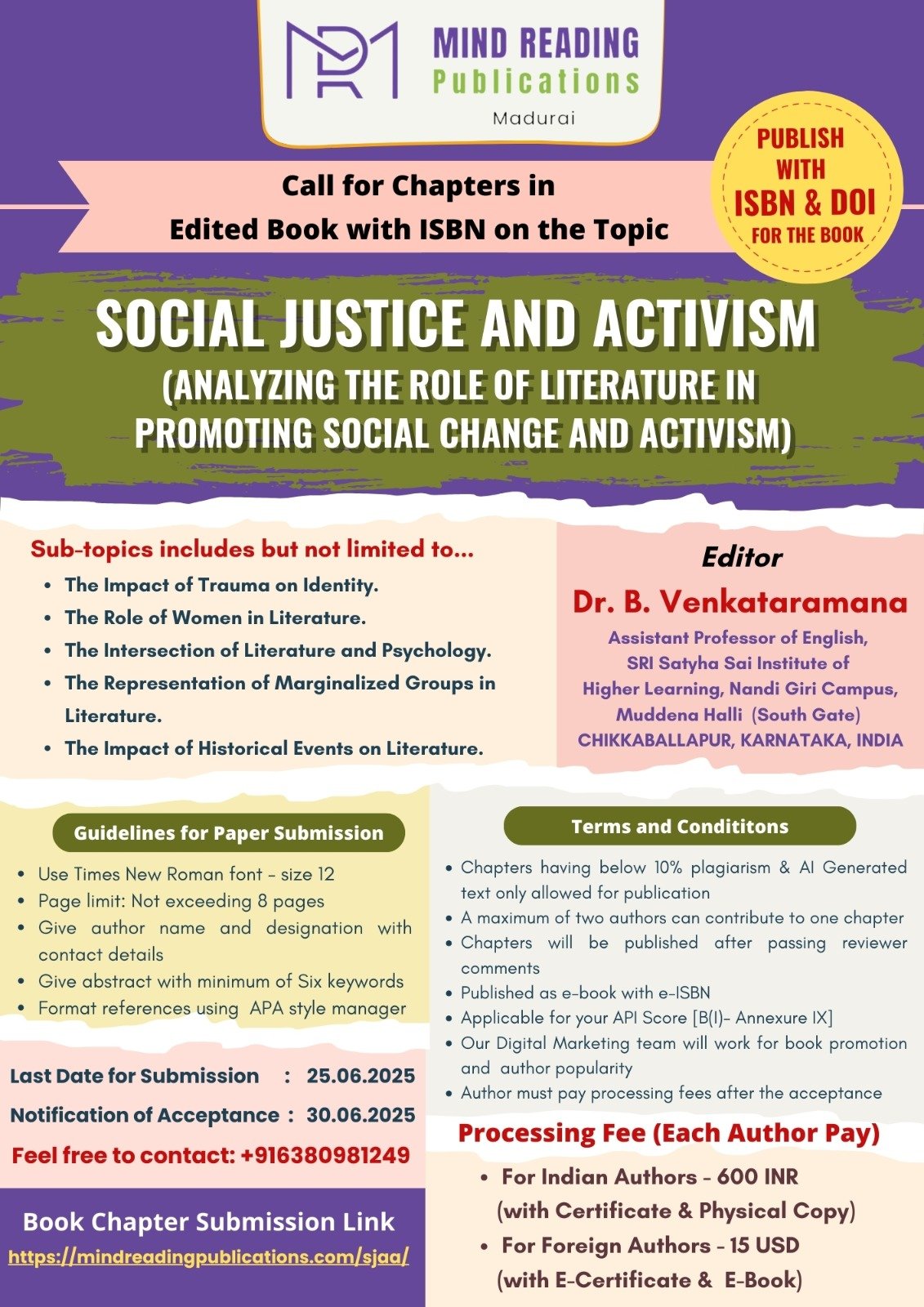SOCIAL JUSTICE AND ACTIVISM
(Analyzing the Role of Literature in Promoting Social Change and Activism)
EDITOR
Dr. B. Venkataramana
Assistant Professor of English, SRI Satyha Sai Institute of Higher Learning Chikkaballapur, Karnataka, India.
Harper Lee’s To Kill a Mockingbird is a powerful example of how literature can inspire social change and activism. Set in the racially segregated American South during the 1930s, the novel tackles themes of racial injustice, prejudice, and moral conscience. Through the eyes of young Scout Finch, readers witness the trial of Tom Robinson, a Black man falsely accused of raping a white woman. The character of Atticus Finch, a principled lawyer who defends Tom despite overwhelming opposition, serves as a symbol of moral integrity and the fight for justice. Lee’s storytelling challenges readers to confront their own biases and the systemic injustices embedded in society. The impact of To Kill a Mockingbird extends far beyond its narrative. Since its publication, it has become a cornerstone in discussions about civil rights, ethics, and empathy. By humanizing the victims of racism and portraying the complexities of moral choices, the book encourages readers to reflect on their responsibilities within their communities. Literature like this plays a crucial role in activism by giving a voice to the marginalized, fostering empathy, and inspiring both personal and collective action toward justice and equality.
Sub – Topics
- The Impact of Trauma on Identity.
- The Role of Women in Literature.
- The Intersection of Literature and Psychology.
- The Representation of Marginalized Groups in Literature.
- The Impact of Historical Events on Literature.
Guidelines for Paper Submission
★ Use Times New Roman font – size 12
★ Page limit: Not exceeding 8 pages
★ Give author name and designation with contact details
★ Give abstract with minimum of Six keywords
★ Format references using APA style manager
Submit Article

Processing Fee (Each Author Pay)
For Indian Authors ↠ 600 INR (Certificate & Physical Copy)
For Foreign Authors ↠ 15 USD (E-Certificate & E-Book)
SUBMISSION DATE
Last Date for Submission ⇢ 25.06.2025
Notification of Acceptance ⇢ 30.06.2025
Terms and Conditions
- Chapters having below 10% plagiarism & AI Generated text only allowed for publication
- A maximum of two authors can contribute to one chapter
- Chapters will be published after passing reviewer comments
- Published as e-book with e-ISBN
- Applicable for your API Score [B(I)Annexure IX]
- Our Digital Marketing team will work for book promotion and author popularity
- Author must pay processing fees after the acceptance
FEEL FREE TO CONTACT
↠ Ph: +916380981249
